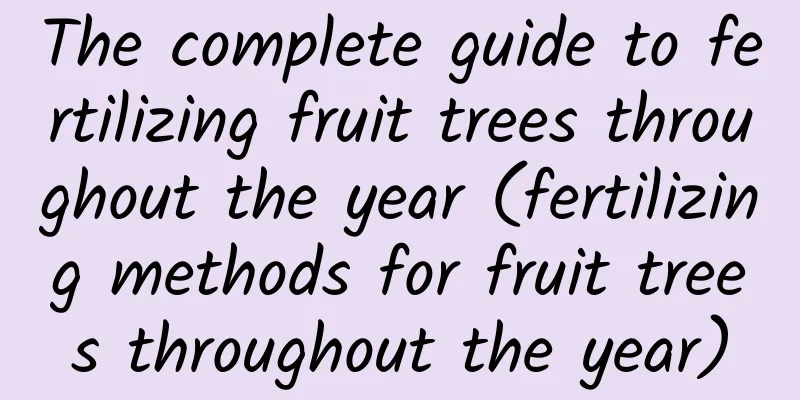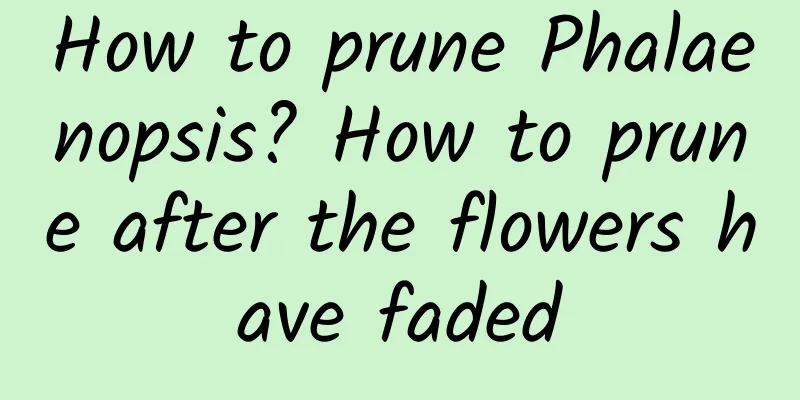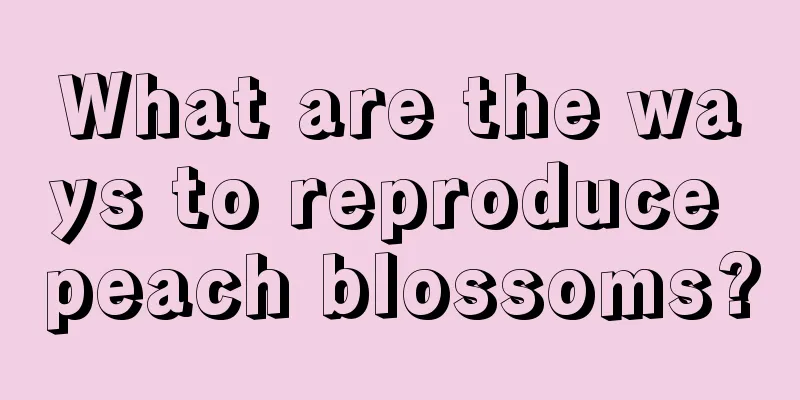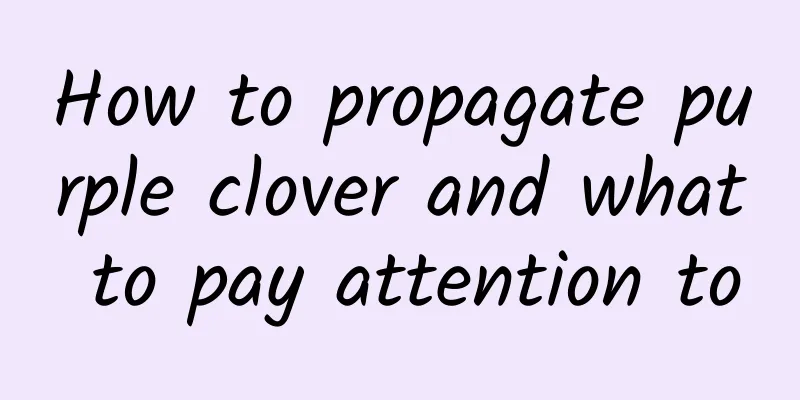Cultivation method of bamboo leaf pepper
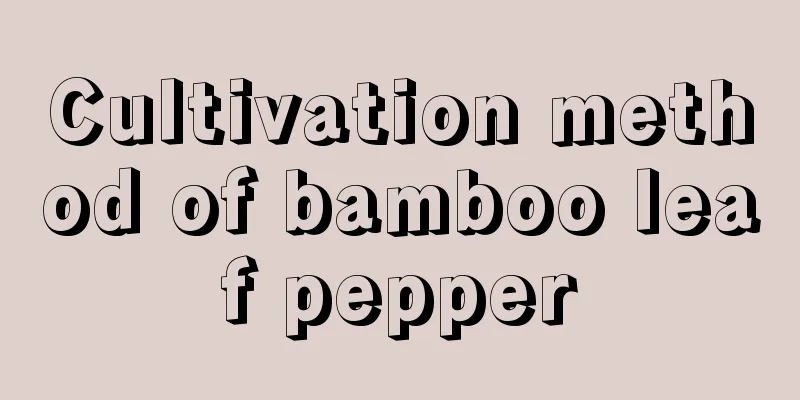
1. Basic IntroductionZanthoxylum bungeanum is also called vine pepper, named after its long vines. Its roots, stems, leaves and fruits can all be used as Chinese medicinal materials, which have the effects of preventing wind and cold, relieving pain and promoting qi circulation, and are very effective in treating rheumatic bone pain. There are two sowing seasons: spring and autumn, but autumn sowing is the main one. 2. Breeding methods1. Selection of seedling site: The preferred planting site for Zanthoxylum bungeanum is a place that is not prone to waterlogging, can be irrigated, has good ventilation and light transmission, and has deep, loose, fertile, moist, and well-drained soil. At the same time, the light conditions near the planting site should be relatively sufficient. 2. Soil: Zanthoxylum bungeanum is not very demanding on soil pH and grows well in neutral or acidic soil. Try to choose a place for planting Zanthoxylum bungeanum that has deep, loose, fertile, neutral or slightly acidic soil. 3. Water: Zanthoxylum bungeanum prefers a humid growing environment and has a high demand for water during the growth process. Water it frequently to keep the soil moist. However, it should be noted that during heavy rainfall, drainage should be carried out in a timely manner to avoid water accumulation that affects its growth and development. 4. Fertilization: Mainly use nitrogen fertilizer, supplemented by biological fertilizer. Pay attention to the dosage when applying fertilizer, and apply small amounts frequently as the basis. Prevent fertilizer damage caused by excessive fertilization, and occasionally use foliar fertilization and micro-fertilizer to meet its nutritional needs for growth. 3. Maintenance Tips1. Preparation of seedling field: The planting land must be deeply plowed. Allow the deep soil to mature, enhance the soil's permeability, improve its ability to retain fertilizer and water, and create a good growth environment for Zanthoxylum bungeanum seedlings. 2. Loosen the soil and weed: Loosen the soil in time and weed frequently. Maintaining good permeability in the nursery field can reduce water evaporation, reduce the occurrence of diseases and pests, and avoid weeds competing with seedlings for fertilizer. 3. Pests: Because the growing environment of Zanthoxylum bungeanum is relatively warm and humid, the chance of diseases and pests occurring is very high. The most common insect pest is rust, which usually requires spraying pesticides to solve the problem. If the degree of insect infestation is relatively minor, it can be caught manually; if the degree is relatively severe, it can be dealt with centrally by spraying pesticides. |
<<: The difference between rose and rose
>>: Differences between Cosmos and Marigold
Recommend
How to grow geranium
1. Water Geranium likes semi-dry soil and cannot ...
Do you know? Some of the succulents you grow are edible!
Succulents can actually be eaten! I saw a book th...
How long is the growth cycle of Lingzhi?
Introduction to Ganoderma Lucidum Growth Ganoderm...
When is the best time to prune wisteria?
Wisteria pruning effect Wisteria grows relatively...
One rose tree blooms with five colors of flowers, just because it was cut with one knife! It suddenly turns into a waterfall of flowers!
Camellia grafting, quickly grow old There are sev...
Where does mangosteen grow? On trees or on the ground? Where does the mangosteen fruit grow on the tree?
Mangosteen is an evergreen tree that takes more t...
Cultivation methods and precautions of Aquilegia
1. Suitable potting soil When cultivating, use fl...
What fertilizer is best for garlic sprouts
Fertilizing time for garlic sprouts Garlic sprout...
Tobacco growing conditions and characteristics
Tobacco growing conditions Tobacco is suitable fo...
How to grow onion flowers
1. Suitable loam Choosing suitable loam is a basi...
How to care for hydroponic Monstera
Hydroponic method of Monstera When hydroponically...
Can mulberries be grown in pots?
Can mulberries be planted in flower pots? Mulberr...
When is the highest survival rate for sunflower cuttings? How many days should the cuttings be exposed to the sun?
1. Cutting time If you want a high survival rate ...
The functions and taboos of soaking roses in water, how many roses should be put in the water
1. Function 1. Beauty and skin care: It contains ...
How to propagate yucca
How to propagate yucca There are three ways to pr...



